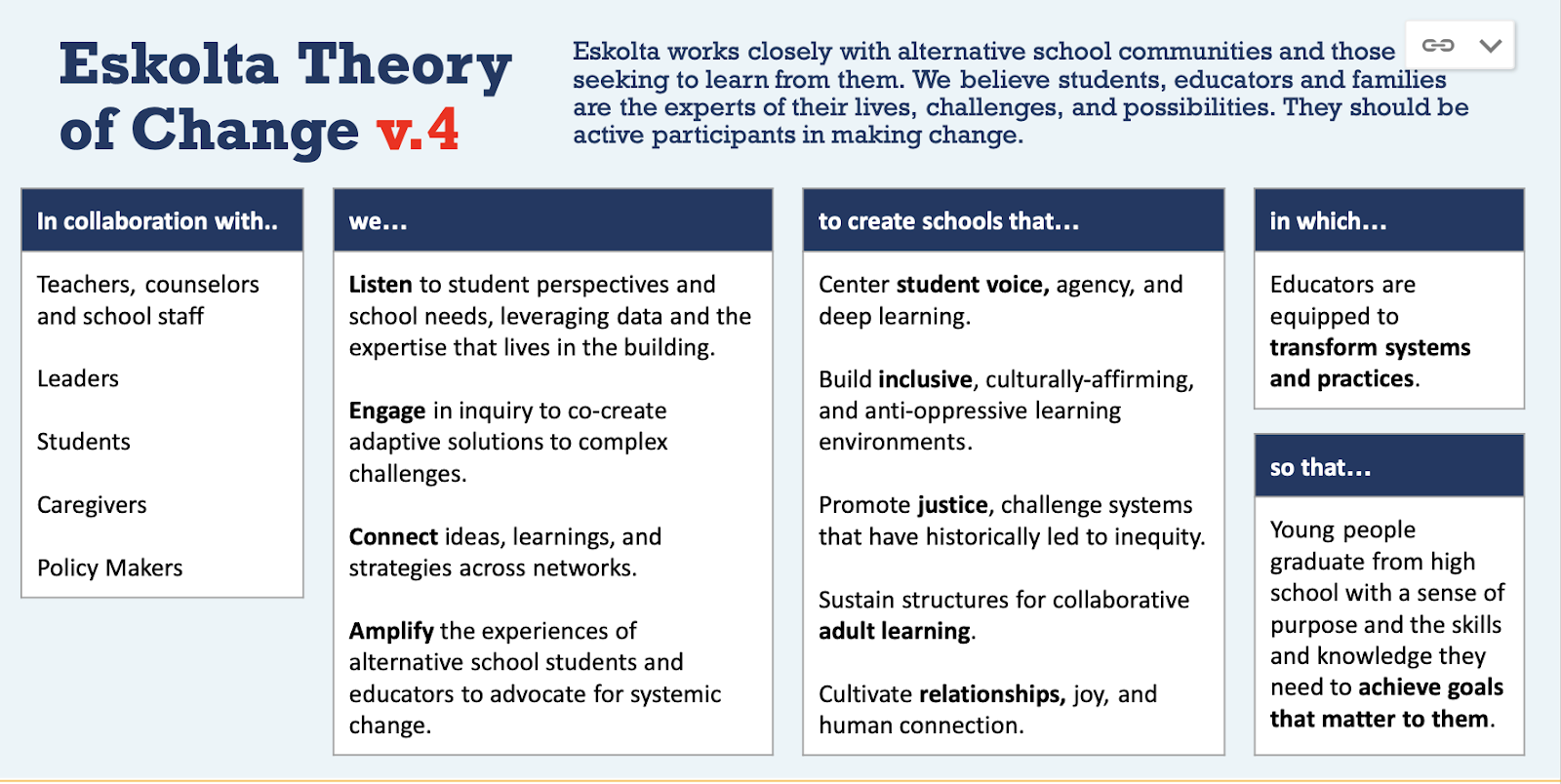At Eskolta, we believe in the power of design thinking. We use a researcher’s mindset and designer’s approach to engage schools and districts in continuous improvement projects and intentionally problem solve. Significant aspects of this type of thinking involve an iterative approach and a whole lot of listening. We believe in deep strategic engagement with our school partners and engaged in similar work as an organization to develop our organizational identity and theory of change, and we’re in the midst of deploying it for a longer-term strategic plan.
This work began during the 2021-2022 year when a team made up of all levels of Eskolta’s staff and partners — educators, principals, and young people from our Youth Advisory Board — assembled to further codify our identity and reevaluate our theory of change. We held meetings to write, revise, and rewrite Eskolta’s identity statement, value statement, and approach to communicate clearly who we are, what we do, and how we do it.
Subsequently, we decided to examine what was occurring in our schools and what needed to occur to build out how we envision change happening. We co-partnered with educators using a culturally responsive and sustaining educational (CRSE) approach to provide them with tools to center equity in their teaching and learning practices. To strengthen our impact, we updated Eskolta’s theory of change, which reflects our commitment to CRSE.

Now for 2023, we are undergoing a strategic planning process that helps bring to life our identity and theory of change, and develops a sustainability plan for the organization. “The authenticity and integrity with which Eskolta implements its mission and vision is reflected not just in the work Eskolta does with schools, districts, and communities across the country, but also within Eskolta itself,” said Clare Bertrand, Eskolta Board President. “This planning process makes clear that Eskolta is a part of—and building—an ecosystem that needs to be strategically aligned in order for all young people to succeed.”
With guidance from EDvolution, which is a collaborative of experienced consultants who work on mission- and vision-aligned projects that leverage their collective expertise, we’ll engage a variety of voices to build on the 2022 progress, establish a shared fact base, and create a strategic plan and financial model.
Anne Martin Williams, who is project managing this strategic plan process and is an education consultant and Eskolta Board member, remarked: “This is an incredibly exciting time for Eskolta as they build on the internal team development work of the last year and engage in a deep and thoughtful strategic planning process to guide their work for the next phase of the organization.”
We are setting out to examine key questions, such as:
- How does the mission and theory of change align to the work and how do they, together, support sustainability?
- Who is doing similar work as Eskolta and are there areas to explore partnerships?
- What are the key services and programs, and are there strategic additions to our offerings?
“This process helps us backward map and create systems and structures for the future,” said Nada Ahmed, chief executive officer of Eskolta. “It’s allowing us to both dream big and create tangible processes. We’re able to set and embed a North Star into the culture and set a strong foundation for what’s ahead.”
Stay tuned to our blog and LinkedIn for updates on the progress!
